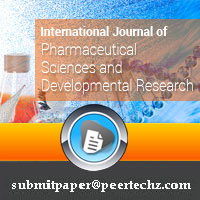International Journal of Pharmaceutical Sciences and Developmental Research
JAK inhibitors: a promising direction for treating Rheumatoid Arthritis
Pelechas Eleftherios*
Cite this as
Eleftherios P (2017) JAK inhibitors: a promising direction for treating Rheumatoid Arthritis. Int J Pharm Sci Dev Res 3(1): 029-029. DOI: 10.17352/ijpsdr.000013Editorial
Rheumatoid Arthritis (RA) is a chronic auto inflammatory disease that causes incapacitating changes both the musculoskeletal system and the internal organs [1]. Tumor Necrosis Factor inhibitors (TNFi) promised a new revolutionary era in RA approximately 20 years ago. Since then, different TNFi molecules appeared in that direction. Nowadays, clinicians have also added in their armamentarium the first bio similar in order to combat RA. The main question is: do they have achieved their goal regarding their efficacy, and if yes, at what extent?
Many doctors and researchers rushed to characterize TNFi as a revolution in modern rheumatology. Most of TNFi yield considerable results when combined with synthetic disease modifying ant rheumatic drugs (sDMARDS). Nevertheless, the results are not satisfactory [2]. At this point, we have to rethink the term “revolution” and replace it with the term “evolution”. In fact, having in mind the low percentage of responders, the super-high cost per patient, hospitalization costs, more difficult mode of administration (intravenous or subcutaneous) and the comparable radiographic progression when compared with cheap sDMARDS, then the results are controversial.
If Janus Kinase (JAK) inhibitors manage to prove that they are not inferior to biologics regarding safety and efficacy over the time, then this will be a real revolution in RA. The main reason for this will not be just their therapeutic potency but the “easy” way of administration. Patients are still waiting for the “magic pill” that will alleviate their pain and keep them away from hospitals and injections. In ancient Roman religion and myth, Janus is the god of beginnings and endings. The time has come to prove if JAK inhibitors will bring the beginning of a new revolutionary era or if they will just be another evolutionary step in RA treatment denoting their early-ending and in parallel establishing the significance of the ambiguous face of the god Janus.
- Pelechas E, Voulgari PV, Drosos AA (2017) Sirukumab: a promising therapy for rheumatoid arthritis. Expert Opinion on Biological Therapy 17: 755-763. Link: https://goo.gl/8ev2e9
- Flouri I, Markatseli TE, Voulgari PV, Kyriaki AB, Papadopoulos I, et al. (2014) Comparative effectiveness and survival of infliximab, adalimumab, and etanercept for rheumatoid arthritis patients in the Hellenic Registry of Biologics: Low rates of remission and 5-year drug survival. Semin Arthritis Rheum 43: 447-457. Link: https://goo.gl/iw9arn
Article Alerts
Subscribe to our articles alerts and stay tuned.
 This work is licensed under a Creative Commons Attribution 4.0 International License.
This work is licensed under a Creative Commons Attribution 4.0 International License.

 Save to Mendeley
Save to Mendeley
